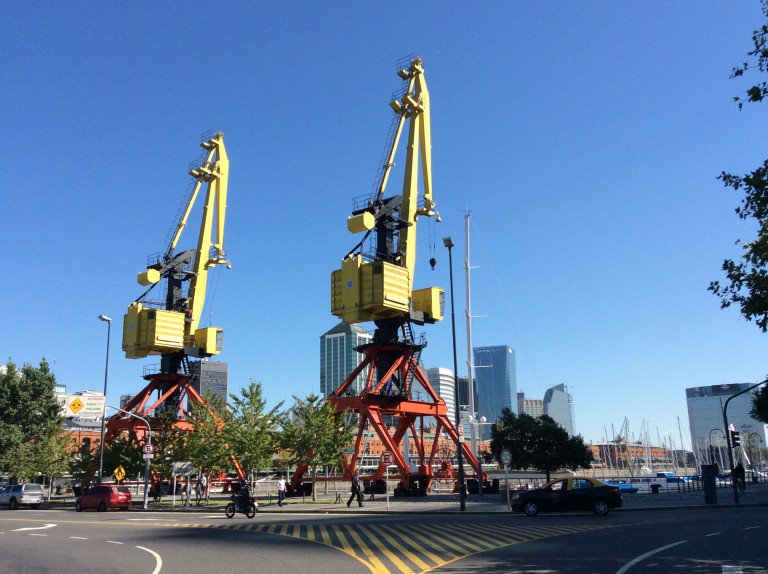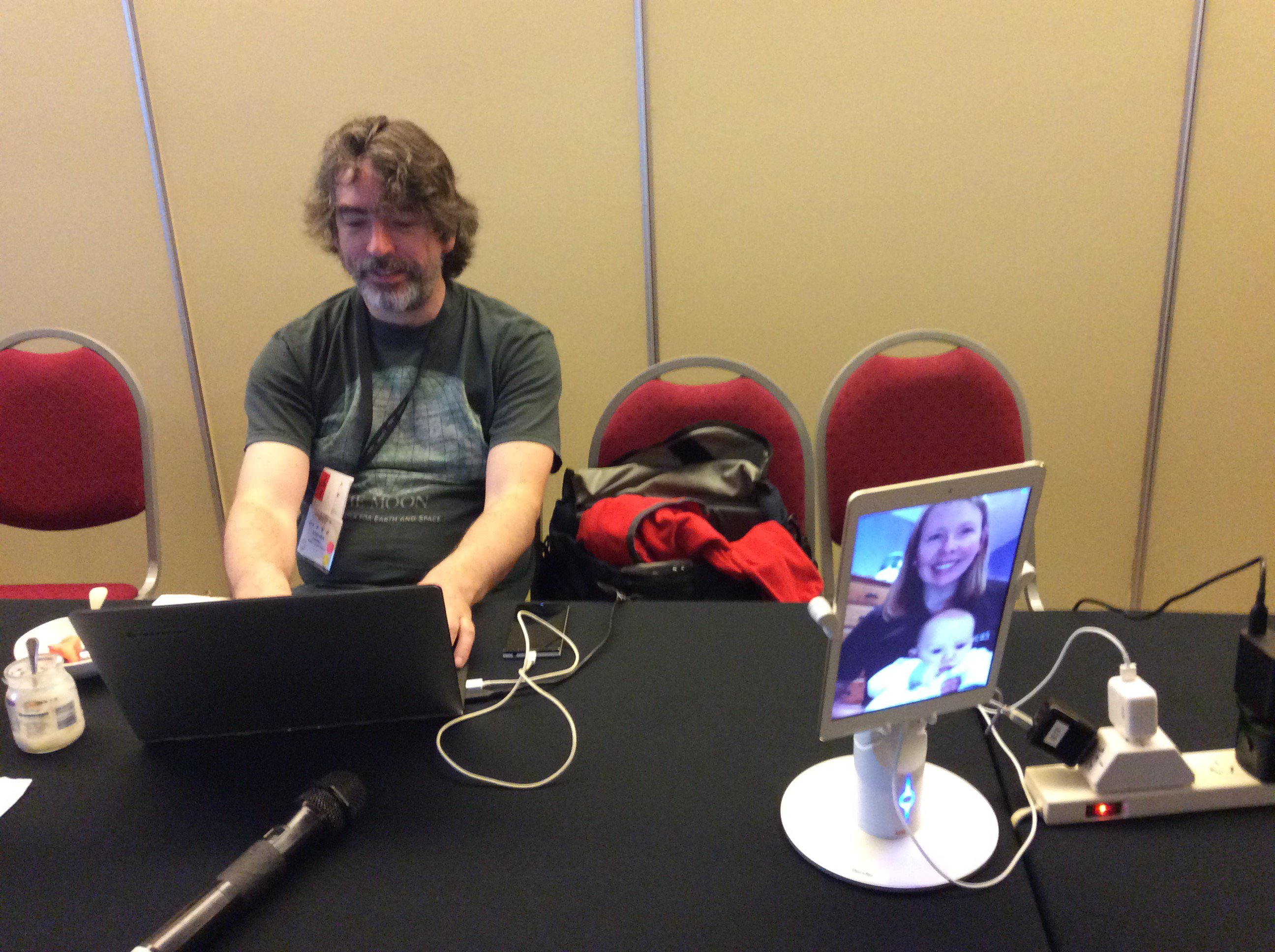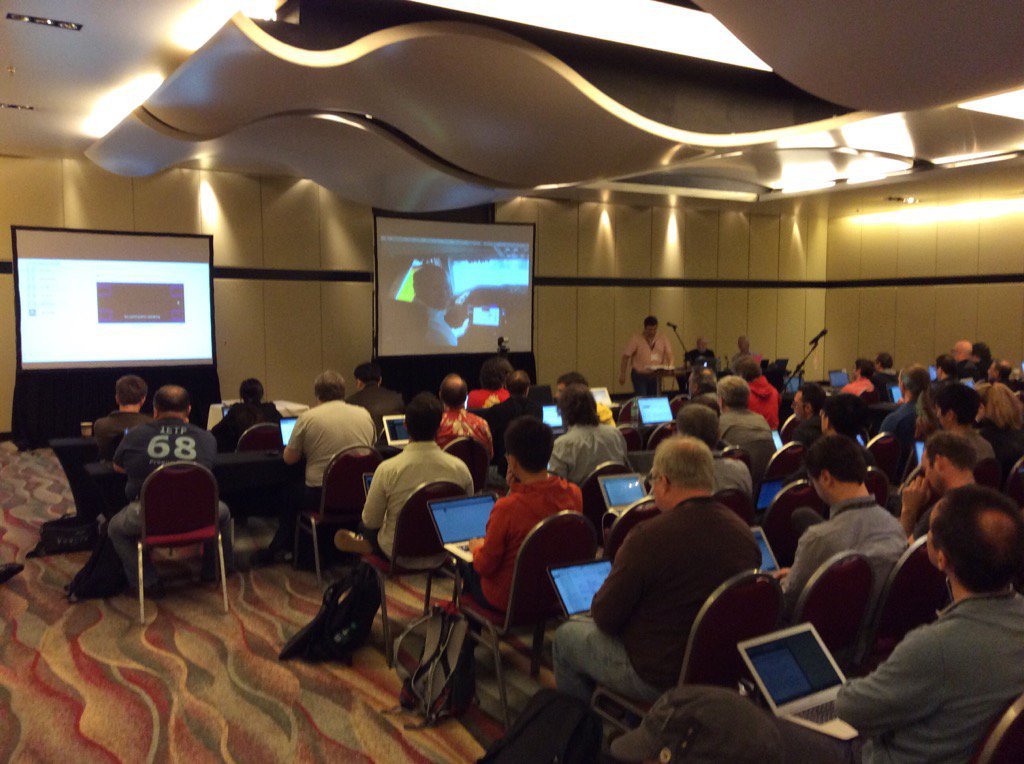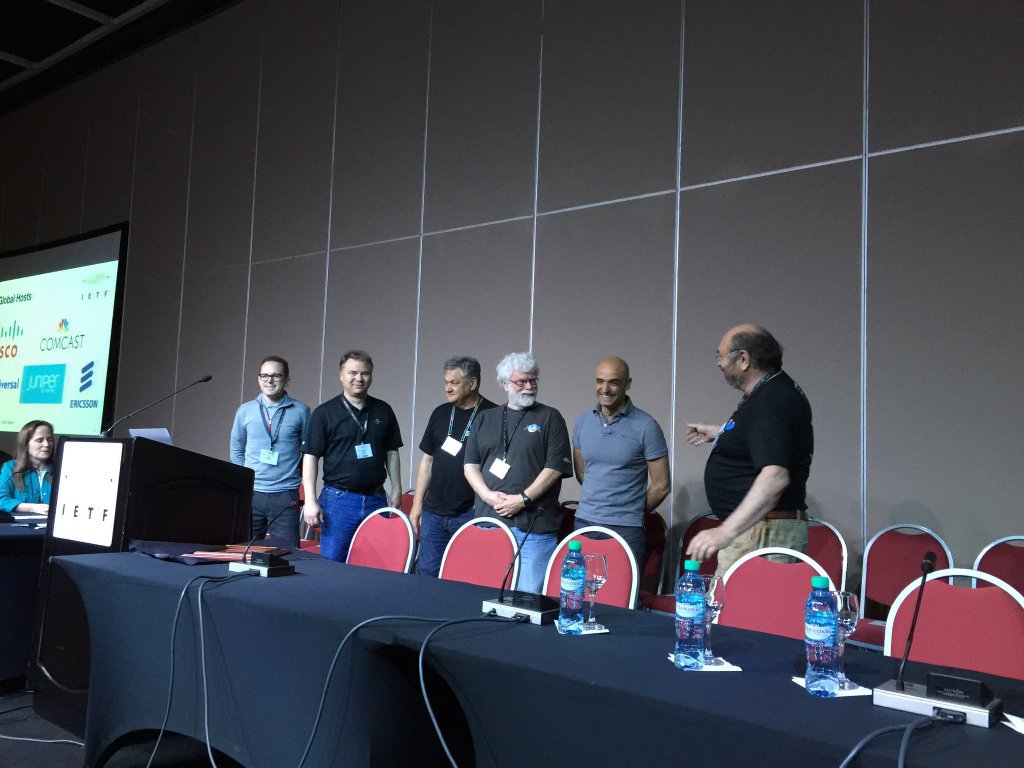Filter by topic and date
IETF-95 Summary
- Jari Arkko IETF Chair
26 Apr 2016
We had a great IETF 95 meeting in Buenos Aires a few weeks ago, with a lot of topics and many participants.

(Para ver un resumen de la reunión de Alvaro Retana haga clic aquí: video)
The rapid rise of the number of remote participants is interesting. While it is somewhat difficult to measure, we had maybe 500 people following the event remotely, and over 50 presentations were done remotely. We even had one of our steering group members participate remotely. This is as it should be: while the meetings are very important for networking, people should also be able to attend over the Internet. Duh, it is the Internet Engineering Task Force.

The second remarkable thing is of course that this was the first meeting in South America, and I was very happy to see the strong local participation — and an active one. It was good to see for instance groups of long-term Internet technologists and local students working together in the IETF Hackathon.
Altogether we had about 140 people from the region.
We had a bit over 1000 participants on site, perhaps slightly less than on more traditional IETF meeting grounds. Most of IETF meetings are held where the majority of participants come from. That was initially North America and Europe, but in the last decade or so the networking industry has grown tremendously in Asia, so we rotate there too. But there is a lot of activity, and many remaining problems in other areas of the world as well, so sometimes we’ll go out of our regular pattern.
The meeting was co-hosted by LACNIC and ISOC — thank you for stepping up to support this meeting! I was also very happy to see many local sponsors, such as IPLAN, CABASE, .AR, and NIC.BR. Thanks for the other sponsors as well: Neustar, Level 3, Comcast – NBC Universal, Huawei, A10 Networks, and ICANN.
A short version of the meeting summary in video form, made just after the meeting itself can be viewed here.

Technical Topics
Dealing with growth of encrypted traffic: This is one of the topics that I am personally interested in. We had two good meetings: lurk LURK, on building a distributed system that allows Content Data Networks (CDNs) to employ HTTPS/TLS while not releasing a copy of the private keys to the CDNs. This improves security and enables a larger set of operators to provide caching services. Another meeting related to this topic was ACCORD, which was about whether either better queuing algorithms or more information about traffic flow priority would be useful for better scheduling of radio resources in mobile networks.
I’m looking forward to the continuation of these topics.
Internet of Things: This is also a very active and interesting area. One of the completely new topics this time was low-power wide area networks. Early steps in this area were discussed in the LPWAN BOF. Also, some IOT-related working groups have completed their initial batches of work and are now looking at new work. For instance, the CORE working group has rechartered. The WG is looking at data formats associated with COAP communications, new communication paradigms, and management aspects. The ROLL is also discussing its new charter and work.
This meeting also saw the first time the new Thing-to-Thing Research Group (T2TRG) meets officially at the IETF. This active research group is focusing on device-to-device communications, and has already met twice outside the IETF in the last few months. Finally, at the plenary we got a report from the recent IAB workshop on semantic interoperability problems. Read up here on what the issue is.
Security: There is plenty of work on various aspects of Internet security. One of the most interesting topics this time was the work on TLS 1.3, and the discussion on its super efficient 0-roundtrip initialisation mode, and under what conditions can replay attacks be avoided in that mode. See here for an explanation of the issue, and join the TLS working group for further discussion.
IETF Hackathon
This was a wonderful experience, both in terms of what got worked on and the people who participated. There were 30+ new people, including 10+ new to the IETF. And people worked on new exciting projects as well as important ongoing ones.
For instance, read Nick Sullivan’s story of implementing TLS 1.3 and making it live on Cloudfare network during the hackathon, Charles Eckel’s observations of the new style of working at the Hackathon, or Agustin Formoso’s experiences as a newcomer.
big1 I also liked a lot Ole Troan’s project on adding source address routing to Vector Packet Processing (VPP). Another exciting new effort! There was also plenty of work on DNS privacy, big data, and many other things. We also have a new sponsor for this year’s IETF Hackathon events, Huawei! Thank you.

Admin Stuff
I was very happy to see Ericsson (my employer, for the sake of transparency) announce a long-term sponsorship agreement with the IETF. Ericsson joins Cisco, Juniper Networks, and Comcast – NBC Universal as one of the Global Hosts. Each commitment is very significant (roughly 1M USD) and will support the IETF for three meetings over the course of the next ten years. You are making the IETF’s work possible!
During the meeting, we announced that the IETF is putting up a team to help should there be any concerns of harassment. Feel free to contact this friendly team if needed.
Alia Atlas gave a talk at the plenary on challenges and opportunities associated with the IETF’s changing environment. For instance, our participation and funding models are changing as it becomes possible to attend remotely. Alias’s presentation is here and the draft on future trends is here.
We are also planning ahead our next meetings. During the administrative plenary we heard a concern about the future site for IETF 100. Our administrative committee, the IAOC, has taken that concern very seriously. It has promised to do two things. First, it will determine the situation and options regarding IETF 100. Second, it will provide more information to the community as planning for future meetings proceeds. Those tasks are still in progress, but as an example of the latter, we’ve announced a set of potential future meeting sites.
Next Up
¡IETF 95 se concluyo! ¡Gracias a LACNIC, Internet Society, Buenos Aires y a todos participantes!
The work continues, obviously, online. Our next meeting is coming up in July in Berlin, hosted by Juniper Networks. I want to draw particular attention to the IETF Hackathon, which is Saturday-Sunday July 16-17. Please join and make this event our largest open source and running code event so far!
